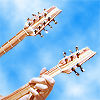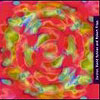Fingers crossed I was hoping somebody (fellow musicians) might be able to give me some suggestions on what the "best" sound card to purchase would be in their opinon for a home computer recording environment? Given that I have just recieved one of the best processors, most "front bus speed" available and 4 GB of RAM.... hence I am covered on the computer side.... Just what type of "Sound Card" should I purchase???
I have read that the PCI sound cards will be obsolete within a year so a USB/Fire wire compatible card is suggested plus I am looking for at least "8 inputs" as well, in addition to midi capabilities. Any suggestions would graciously help my search????
Thanks
Need Help with Home Recording Setup
9 posts • Page 1 of 1
Not a musician myself, but I have a friend who is. From what I can make out, PCI soundcards are not the way to go for 'serious' music making.
I know he favours using a Mac for recording, using the full version of Logic - I'll find out what soundcard he uses/recommends
Sonic
I know he favours using a Mac for recording, using the full version of Logic - I'll find out what soundcard he uses/recommends
Sonic
-

sonic_chronicler - Everything & Nothing

- Posts: 276
- Joined: Tue May 09, 2006 9:45 pm
- Location: UK
yeah i was going to recommend the mac as well....

_______________________________________
"A thousand voices sing the silence...A glimpse of the map of destiny is mine" D.S.
http://www.laurasavidgephotography.com
-

godisinthesilences - Everything & Nothing

- Posts: 2464
- Joined: Thu May 18, 2006 10:50 pm
- Location: central ny state
I got into PC-based recording about five years ago -- that's a century in computer years! So I'm a bit out of the loop when it comes to that kind of thing. But I can tell you that the folks at sweetwater.com are extremely knowledgable and extremely helpful and their prices are usually competitive, too. They've even got message boards on their website so you can post your questions there, or see if someone else may have asked the same question.
I've since bought a TASCAM 2488, so I've effectively abandoned desktop recording. But I may get back into someday, so let me know what you end up getting, k?
Happy noisemaking
I've since bought a TASCAM 2488, so I've effectively abandoned desktop recording. But I may get back into someday, so let me know what you end up getting, k?
Happy noisemaking

-

marcello09 - Fanatic

- Posts: 72
- Joined: Sat Jul 29, 2006 6:42 pm
- Location: Ann Arbor, Michigan, USA
Re: Need Help with Home Recording Setup
Crickett wrote:I have read that the PCI sound cards will be obsolete within a year so a USB/Fire wire compatible card is suggested plus I am looking for at least "8 inputs" as well, in addition to midi capabilities. Any suggestions would graciously help my search????
There are so many options in digital recording these days that your main consideration is probably going to simply be how much you can afford to spend. Below are a couple of general suggestions, both are compatible with the Mac or PC:
- If you want an industry standard format that will be easily compatible with just about any studio in the world go with a ProTools system. Their 002 Package is a mutli-channel system that allows you to get into ProTools without the astronomical expense of their professional TDM systems. However, you can easily open your 002 files into a TDM system if that is something you foresee doing in the future.
- MOTU has several Firewire and USB audio interfaces available for multi-channel recording. Many people I've worked with use these boxes along with software packages such as Logic Audio or MOTU's own Digital Performer.
-

John Trevethan - Obsessed

- Posts: 147
- Joined: Sat May 06, 2006 11:44 pm
!Aloha Everybody!
Thank You for the wonderful perspectives and advice! Every word is deeply appreciated and taken into consideration.
I have put a couple months research into this whole process and I am now trying to discover everyone elses approach in hopes of finding the best territory to stake a claim in.
Mr Trevethan, First and foremost I check out Your website and Myspace page, I am very impressed and honored to recieve advice from You. Oh Yeah I used to work with "Happy The Man's" Keyboardist's ex-wife/girlfriend in Virginia and was given an overloaded amount of there work, good to see there are other fans out there.
But Yes.. Mr. Trevethan I was curious if I could seek Your council and hopefully Your help in creating my recording environment. I have a few questions:
1) Does this Hardware (below) seem sufficient for a professional recording setup???
Athlon 64 3500+ processor (2.20GHz, 512K)
2GB DDR2 SDRAM at 533MHz
160GB SATA II Hard Drive (7200RPM)
Firewire and Usb ports
2) How would You recommend I build my recording environment????
ex. computer hardware 1st, soundcard 2nd, software3rd etc???
3) I have been eyeing the MOTU 8pre FireWire soundcard... yet do You know of any other well praised cards that have 8 instrument inputs and Midi capabilities that are a little cheaper at $350 or under?
4) Do You think it is wise to use a Firewire/USB sound card other than a PCI sound card? Why?
5) What type of recording software do You suggest that is primarly for recoding direct instrument recording (bass, gutar etc.) and multi-miced live drums, woodwinds etc. and that is $500 or under???
6) What type of "box" do I need to connect my direct instrument cords via the sound card? This is where I really need some advice as well!
7) What type of mixing desk or mixing software do You suggest for under $1000?
I am relatively computer savy and have read quite a bit on the whole studio setup process yet any Advice is Very appreciated!!! I am finally moving from a 8-track tascam analog machine to Modern times so I really what to make sure I am headed in the right direction and Mr. Trevethan You definitely seem like the right person to ask........
Thanks for Your time
Sincerely
Crickett
Thank You for the wonderful perspectives and advice! Every word is deeply appreciated and taken into consideration.
I have put a couple months research into this whole process and I am now trying to discover everyone elses approach in hopes of finding the best territory to stake a claim in.
Mr Trevethan, First and foremost I check out Your website and Myspace page, I am very impressed and honored to recieve advice from You. Oh Yeah I used to work with "Happy The Man's" Keyboardist's ex-wife/girlfriend in Virginia and was given an overloaded amount of there work, good to see there are other fans out there.
But Yes.. Mr. Trevethan I was curious if I could seek Your council and hopefully Your help in creating my recording environment. I have a few questions:
1) Does this Hardware (below) seem sufficient for a professional recording setup???
Athlon 64 3500+ processor (2.20GHz, 512K)
2GB DDR2 SDRAM at 533MHz
160GB SATA II Hard Drive (7200RPM)
Firewire and Usb ports
2) How would You recommend I build my recording environment????
ex. computer hardware 1st, soundcard 2nd, software3rd etc???
3) I have been eyeing the MOTU 8pre FireWire soundcard... yet do You know of any other well praised cards that have 8 instrument inputs and Midi capabilities that are a little cheaper at $350 or under?
4) Do You think it is wise to use a Firewire/USB sound card other than a PCI sound card? Why?
5) What type of recording software do You suggest that is primarly for recoding direct instrument recording (bass, gutar etc.) and multi-miced live drums, woodwinds etc. and that is $500 or under???
6) What type of "box" do I need to connect my direct instrument cords via the sound card? This is where I really need some advice as well!
7) What type of mixing desk or mixing software do You suggest for under $1000?
I am relatively computer savy and have read quite a bit on the whole studio setup process yet any Advice is Very appreciated!!! I am finally moving from a 8-track tascam analog machine to Modern times so I really what to make sure I am headed in the right direction and Mr. Trevethan You definitely seem like the right person to ask........
Thanks for Your time
Sincerely
Crickett
-

Crickett - Regular

- Posts: 42
- Joined: Fri Sep 15, 2006 2:54 pm
- Location: Miami, Florida
Crickett wrote:What type of recording software do you suggest...
On this question I wholeheartedly recommend Ableton LIVE. It is now the hub of my writing / recording / mixing / performing set-up.
Version 6 has just been released.
-

fletchertronics - Fanatic

- Posts: 72
- Joined: Sat May 13, 2006 6:18 pm
- Location: UK
Crickett wrote:
1) Does this Hardware (below) seem sufficient for a professional recording setup???
Athlon 64 3500+ processor (2.20GHz, 512K)
2GB DDR2 SDRAM at 533MHz
160GB SATA II Hard Drive (7200RPM)
Firewire and Usb ports
This all seems totally fine... you've got the firewire port which is good as many of the audio interfaces use firewire communication.
Crickett wrote:2) How would You recommend I build my recording environment???? ex. computer hardware 1st, soundcard 2nd, software3rd etc???
Well. I was taught to decide on software and then build the system around that. I did this way-back-when with C-Lab's Notator software, which only ran on the Atari platform at that time - so I purchased an Atari and never regretted it!
That said, your current system is sufficient to run most all of the current generation of audio software.
Crickett wrote:3) I have been eyeing the MOTU 8pre FireWire soundcard... yet do You know of any other well praised cards that have 8 instrument inputs and Midi capabilities that are a little cheaper at $350 or under?
I don't have personal experience with the 8pre, however you could probably pick up one of MOTU's older firewire boxes on Ebay for a good price. They have made several excellent interfaces which are now discontinued and would serve you well.
RME was also a well-respected builder of interfaces a couple of years ago, however I haven't really kept up with their latest products.
Crickett wrote:4) Do You think it is wise to use a Firewire/USB sound card other than a PCI sound card? Why?
Yes, for a couple of reasons:
1. Portability - most Firewire/USB solutions are cross-platform so if you need to move to another machine in the future it will be easier and less expensive.
2. Sound quality - with a built-in soundcard you are placing the audio electronics inside the computer in close proximity to the computer's RF signals. External interfaces tend to be cleaner and quieter than internal soundcards.
Crickett wrote:5) What type of recording software do You suggest that is primarily for recording direct instrument recording (bass, guitar etc.) and multi-miced live drums, woodwinds etc. and that is $500 or under???
Like Fletchertronics said, Albelton is great with it's combination of audio, midi and loop capabilities. Also, Logic Express was a nice alternative to the full-blown version of Logic Audio giving you the bulk of the features for a good price. (Well under $500 when I last checked). However, I'm not sure if it is still offered or supported since Apple swallowed up Emagic.
Crickett wrote:6) What type of "box" do I need to connect my direct instrument cords via the sound card? This is where I really need some advice as well!
Most current interface boxes offer line inputs as well as mic level inputs for each channel. Some of the boxes feature input connectors that are XLRs with 1/4" line inputs right in the center of them. Usually you then decide which inputs are mic and which are line by switching them in software. (Or in some cases a hardware switch on the box itself.)
Crickett wrote:7) What type of mixing desk or mixing software do You suggest for under $1000?
I've been a "mix-by-mouse" kind of guy for a long time now... but that's just the way that I work. Ableton Live or Logic (as well as ProTools, Performer, etc.) all have very nice virtual mixers built in. If you don't have an absolute need for actual faders then the software will be able to do it all.
That said, if you go the virtual route you would probably want to purchase one of the "master section" type of boxes. These replace the master section of a console by giving you a master fader or knob, various input source switching, talkback features, etc. I use the StudioComm Model 51 from Studio Technologies and I love it.
Hope this helps a little!
-

John Trevethan - Obsessed

- Posts: 147
- Joined: Sat May 06, 2006 11:44 pm
My advice would be to phone the specialists; I used Turnkey, Denmark St in London who were great.
If you're looking to buy a PC, I recommend you buy a 'specifically built for music' PC. I have the Carillon AC1, which is robust and reliable.
Failing all the above get the highest specc'd soundcard you can get. You get what you pay for! I'll leave all the technical stuff to those who've posted above.
Talking of which, shall we all share our websites on one thread?
C x
If you're looking to buy a PC, I recommend you buy a 'specifically built for music' PC. I have the Carillon AC1, which is robust and reliable.
Failing all the above get the highest specc'd soundcard you can get. You get what you pay for! I'll leave all the technical stuff to those who've posted above.
Talking of which, shall we all share our websites on one thread?
C x
- camphorvan
- Everything & Nothing

- Posts: 326
- Joined: Wed Aug 16, 2006 3:17 pm
9 posts • Page 1 of 1
Who is online
Users browsing this forum: No registered users and 15 guests

